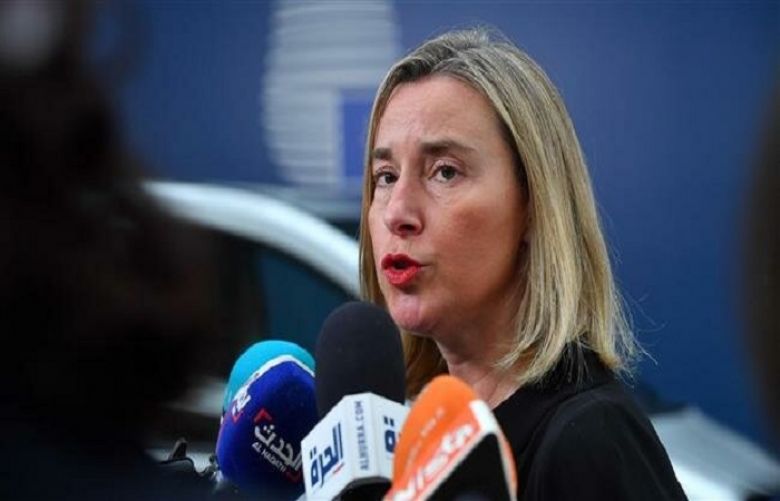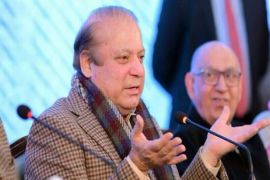European Union foreign policy chief Federica Mogherini says the signatories to the 2015 Iran nuclear deal do not view Tehran's move to scale back some of its commitments under the agreement as significant noncompliance and have not indicated any intent to trigger the accord’s dispute mechanism.
Mogherini made the statement on Monday, less than a week after the International Atomic Energy Agency (IAEA) confirmed that Iran had passed the 3.67% uranium enrichment cap set by the nuclear deal, officially known as the Joint Comprehensive Plan of Action (JCPOA).
"For the time being, none of the parties to the agreement has signaled their intention to invoke this article," Mogherini told a news conference in Brussels, adding, "It means that none of them for the moment, for the time being with the current data we have had in particular from the IAEA, that the noncompliance is considered to be significant noncompliance."
Mogherini also called on Iran to reverse the steps to reduce its commitments under the nuclear agreement, stressing that the bloc would focus on diplomatic efforts to defuse the tension.
"The deal is not in good health, but it's still alive," Mogherini said. "We hope and we invite Iran to reverse these steps and go back to full compliance with the agreement.”
The top EU diplomat also said the first transaction as part of the mechanism to facilitate trade with Iran was being processed, adding that eight member states have either joined the trade channel, officially called the Instrument in Support of Trade Exchanges (INSTEX), or have expressed interest to do so.
Mogherini stressed that Europe's trade channel with Iran is open to third parties.
Iran’s President Hassan Rouhani announced on May 8 the suspension of some of the country’s commitments under the JCPOA, precisely a year after the United States unilaterally withdrew from the deal.
The JCPOA was originally signed between Iran and six world powers — namely the US, the UK, France, Russia, China plus Germany. Washington, however, unilaterally withdrew in May 2018.
All the other parties to the deal have been critical of Washington’s move and have been holding meetings with Tehran to discuss how they can make the pact work properly for the Iranian side as well, but the talks have made little progress.
Tehran has said it would potentially scrap the deal if the remaining signatories -- mainly the Europeans -- fail to deliver on pledges to protect bilateral trade from US sanctions against Iran.
Earlier on Monday, the spokesman for the Atomic Energy Organization of Iran (AEOI) said Tehran is planning to go back to the conditions preceding the landmark 2015 nuclear deal unless European signatories fulfill their obligations.
Behrouz Kamalvandi said Tehran’s retaliatory decision to reduce some of its commitments under the JCPOA is within the framework of the accord which says if one side fails to deliver on its commitments, the right is reserved for the other party to reconsider its obligations.
“If the Europeans and the United States do not fulfill their commitments, we will balance out their actions under the deal by reducing commitments and taking the conditions back to how they were four years ago,” he said.
Iran, which had been fully complying with all of its commitments despite the US pullout and the European shortfalls, announced on July 7 that it was set to increase enrichment purity to levels higher than 3.67 percent after the European parties missed the deadline.







